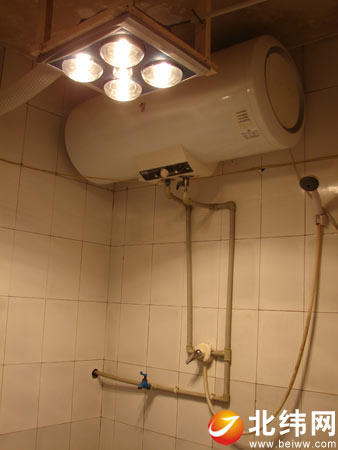‘TPP membership would synergize Korean, Japanese economies’
2024-09-22 19:22:02 [新闻中心] 来源:CCTV News Channel live broadcast
Korea’s prospective membership in the Trans-Pacific Partnership would go beyond eliminating tariffs, closely linking its economy with Japan and shoring up its competitiveness within an interconnected global value chain, an influential economist has said.
As a “platinum standard” agreement instantly abolishing 87.4 percent of tariffs on items and 81.3 percent on export volume, the accord was reached on Oct. 5 last year between 12 Pacific Rim countries ― the U.S., Japan, Canada, Australia, Mexico, New Zealand, Malaysia, Vietnam, Singapore, Brunei, Chile and Peru. Korea announced its intention to join last December, and was followed by Thailand, Indonesia and the Philippines.
The compact, expected to come into force within two to three years following congressional ratifications in member countries, aims to rewrite the rules of the world’s economic order toward greater liberalization and deregulation, according to Fukagawa Yukiko, Waseda University professor and visiting scholar at Yonsei University.
The members have agreed to knock down tariffs on nearly all traded items over the next 30 years, targeting economic growth, creation and retention of jobs, higher innovation, productivity and competitiveness, poverty reduction, increased business transparency, as well as better governance, labor management and environmental protection.
As a comprehensive deal encompassing 40 percent of the global economy, it covers goods and services, rules of origin, trade remedies, government procurement, the environment, labor, pharmacies, sanitation, intellectual property rights and strategies for small and middle-sized enterprises.
“The TPP will be Japan’s highest standard free trade agreement as the country works to move its economy from hardware manufacturing to knowledge-based industries,” Fukagawa said at a seminar titled “How does Japan prepare for the post-TPP regime?” at the East Asia Foundation in Seoul in late January.

“The Japanese government has been pushing it so hard, saying it should abandon ugly protectionism, particularly from the powerful agricultural sector.”
Unlike in the U.S., where the deal must pass the Republican-dominated Congress that has been divided over the ratification, in Japan, “Abe’s political position is so established that there is virtually no opposition,” she stressed.
To weaken and compromise with the agricultural lobbying groups ― the most resistant being “Ja Zenchu” (the Central Union of Agricultural Cooperatives) ― five “sanctuary” products of rice, sugar, beef, pork and dairy products were excluded from the list.
After the pact enters effect, she added, Japan’s agricultural industry will combine operations with large-scale distribution and logistics enterprises to capitalize on overseas supermarkets and convenience stores, particularly in Taiwan, Hong Kong and affluent Chinese cities.
Small and medium-sized Japanese retailers, such as ramen noodle companies, are establishing shops in Europe; advanced basic scientific research is being integrated with commercial schemes; and services industries will incorporate the Internet of Things, artificial intelligence and robots, to increase productivity.
According to the development and trade economist, who received her master’s degree from Yale University and doctorate from Waseda University, the TPP is a “game changer” in that it goes beyond eliminating tariffs to establishing common new rules across the Asia-Pacific for trade and investment.
“The TPP is fundamentally about reducing risks for businesses. Its clauses have high standards of liberalization covering goods, services and investment, including new rules on state enterprises, investor-state disputes and transparency in sanitary and phytosanitary measures.”
She added that the TPP would boost Japan’s economy by 2.6 percent, while positively affecting 800,000 jobs in Japan.

As Korea has bilateral FTAs with all of the TPP members except Japan and Mexico, Seoul’s anticipated participation would be equivalent to negotiating with Japan, according to Dr. Ahn Choong-yong, chairman of the Korean Commission for Corporate Partnership.
Underlining the “gold standard” Korea-U.S. FTA, which came into force in March, 2012, Ahn argued that Korea’s hardware manufacturing was “competitive enough” to accept the terms and conditions. He added that the TPP ― as the “third arrow” of Abenomics economic policies addressing fiscal stimulus, monetary easing and structural reform ― bears resemblances to the President Park Geun-hye administration’s “creative economy” policy, aiming at industrial innovation.
Unlike Korea, which had to undertake significant economic restructuring following the 1997 Asian financial crisis, Fukagawa pointed out, Japan’s economy needed an “external shock” to awaken from a protracted slumber.
She claimed the TPP would catalyze businesses to differentiate their products and services using big data, shifting the focus “from hardware to systems, price competition to innovation, domestic protectionism to industrial competitiveness, and most importantly, from nations to firms to individuals.”
“Some countries are still sticking to the old, 20th century-type industrial policies, intervening in the market out of proclaimed ‘sovereign interests’ and preferentially treating domestic companies,” Fukagawa said.
“Inbound foreign direct investment and movement of individuals are the most crucial aspects of Japan’s growth strategy. As Japan has an incredibly small number of foreign firms, we are inviting all high-skilled workers from abroad with incentives and subsidies.”
Noting that her government eased visa regulations for young and talented professionals, she indicated that Korean and Japanese job seekers would find greater opportunities in each other’s countries in the foreseeable future.
As untapped, lucrative sectors, the scholar pointed to the health care industry ― regenerative medicine, big-data-based services and clinical innovation networks ― as both societies are aging fast; research and academic partnership; clean energy; and advanced infrastructure, manufacturing, agriculture and intelligent transportation system, which would be embedded with IoT technologies.
By Joel Lee (joel@heraldcorp.com)
As a “platinum standard” agreement instantly abolishing 87.4 percent of tariffs on items and 81.3 percent on export volume, the accord was reached on Oct. 5 last year between 12 Pacific Rim countries ― the U.S., Japan, Canada, Australia, Mexico, New Zealand, Malaysia, Vietnam, Singapore, Brunei, Chile and Peru. Korea announced its intention to join last December, and was followed by Thailand, Indonesia and the Philippines.
The compact, expected to come into force within two to three years following congressional ratifications in member countries, aims to rewrite the rules of the world’s economic order toward greater liberalization and deregulation, according to Fukagawa Yukiko, Waseda University professor and visiting scholar at Yonsei University.
The members have agreed to knock down tariffs on nearly all traded items over the next 30 years, targeting economic growth, creation and retention of jobs, higher innovation, productivity and competitiveness, poverty reduction, increased business transparency, as well as better governance, labor management and environmental protection.
As a comprehensive deal encompassing 40 percent of the global economy, it covers goods and services, rules of origin, trade remedies, government procurement, the environment, labor, pharmacies, sanitation, intellectual property rights and strategies for small and middle-sized enterprises.
“The TPP will be Japan’s highest standard free trade agreement as the country works to move its economy from hardware manufacturing to knowledge-based industries,” Fukagawa said at a seminar titled “How does Japan prepare for the post-TPP regime?” at the East Asia Foundation in Seoul in late January.

“The Japanese government has been pushing it so hard, saying it should abandon ugly protectionism, particularly from the powerful agricultural sector.”
Unlike in the U.S., where the deal must pass the Republican-dominated Congress that has been divided over the ratification, in Japan, “Abe’s political position is so established that there is virtually no opposition,” she stressed.
To weaken and compromise with the agricultural lobbying groups ― the most resistant being “Ja Zenchu” (the Central Union of Agricultural Cooperatives) ― five “sanctuary” products of rice, sugar, beef, pork and dairy products were excluded from the list.
After the pact enters effect, she added, Japan’s agricultural industry will combine operations with large-scale distribution and logistics enterprises to capitalize on overseas supermarkets and convenience stores, particularly in Taiwan, Hong Kong and affluent Chinese cities.
Small and medium-sized Japanese retailers, such as ramen noodle companies, are establishing shops in Europe; advanced basic scientific research is being integrated with commercial schemes; and services industries will incorporate the Internet of Things, artificial intelligence and robots, to increase productivity.
According to the development and trade economist, who received her master’s degree from Yale University and doctorate from Waseda University, the TPP is a “game changer” in that it goes beyond eliminating tariffs to establishing common new rules across the Asia-Pacific for trade and investment.
“The TPP is fundamentally about reducing risks for businesses. Its clauses have high standards of liberalization covering goods, services and investment, including new rules on state enterprises, investor-state disputes and transparency in sanitary and phytosanitary measures.”
She added that the TPP would boost Japan’s economy by 2.6 percent, while positively affecting 800,000 jobs in Japan.

As Korea has bilateral FTAs with all of the TPP members except Japan and Mexico, Seoul’s anticipated participation would be equivalent to negotiating with Japan, according to Dr. Ahn Choong-yong, chairman of the Korean Commission for Corporate Partnership.
Underlining the “gold standard” Korea-U.S. FTA, which came into force in March, 2012, Ahn argued that Korea’s hardware manufacturing was “competitive enough” to accept the terms and conditions. He added that the TPP ― as the “third arrow” of Abenomics economic policies addressing fiscal stimulus, monetary easing and structural reform ― bears resemblances to the President Park Geun-hye administration’s “creative economy” policy, aiming at industrial innovation.
Unlike Korea, which had to undertake significant economic restructuring following the 1997 Asian financial crisis, Fukagawa pointed out, Japan’s economy needed an “external shock” to awaken from a protracted slumber.
She claimed the TPP would catalyze businesses to differentiate their products and services using big data, shifting the focus “from hardware to systems, price competition to innovation, domestic protectionism to industrial competitiveness, and most importantly, from nations to firms to individuals.”
“Some countries are still sticking to the old, 20th century-type industrial policies, intervening in the market out of proclaimed ‘sovereign interests’ and preferentially treating domestic companies,” Fukagawa said.
“Inbound foreign direct investment and movement of individuals are the most crucial aspects of Japan’s growth strategy. As Japan has an incredibly small number of foreign firms, we are inviting all high-skilled workers from abroad with incentives and subsidies.”
Noting that her government eased visa regulations for young and talented professionals, she indicated that Korean and Japanese job seekers would find greater opportunities in each other’s countries in the foreseeable future.
As untapped, lucrative sectors, the scholar pointed to the health care industry ― regenerative medicine, big-data-based services and clinical innovation networks ― as both societies are aging fast; research and academic partnership; clean energy; and advanced infrastructure, manufacturing, agriculture and intelligent transportation system, which would be embedded with IoT technologies.
By Joel Lee (joel@heraldcorp.com)
(责任编辑:关于我们)
推荐文章
-
10 Big Misconceptions About Computer Hardware
 With technology advancing so rapidly around us, sometimes misconceptions can work their way into our
...[详细]
With technology advancing so rapidly around us, sometimes misconceptions can work their way into our
...[详细]
-
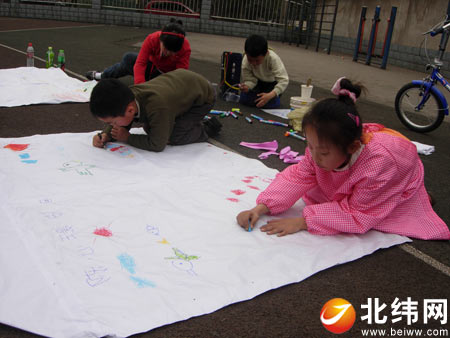 孔明灯又名阳灯、许愿灯。孔明灯是人们在元宵佳节寄托美好愿望和祝福平安的载体。2月28日,在家长的帮助下,一些孩子们尝试着自己动手制作孔明灯,活动组织者希望借此培养孩子的动手能力,为元宵节增加欢乐气氛
...[详细]
孔明灯又名阳灯、许愿灯。孔明灯是人们在元宵佳节寄托美好愿望和祝福平安的载体。2月28日,在家长的帮助下,一些孩子们尝试着自己动手制作孔明灯,活动组织者希望借此培养孩子的动手能力,为元宵节增加欢乐气氛
...[详细]
-
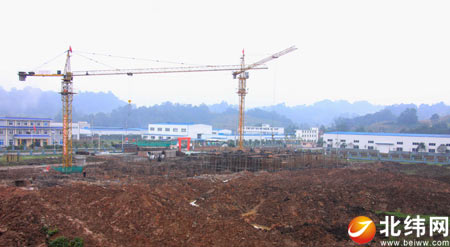 园区内九晶单晶棒项目建设现场 步入冬日的四川雅安工业园区,映入眼帘的,是一幢幢布局合理,环境优美的标准化厂房;一处处焊花飞溅,繁忙而有序的建设工地;一间间机器轰鸣,干净整洁的现代化生产车间;一辆辆川流
...[详细]
园区内九晶单晶棒项目建设现场 步入冬日的四川雅安工业园区,映入眼帘的,是一幢幢布局合理,环境优美的标准化厂房;一处处焊花飞溅,繁忙而有序的建设工地;一间间机器轰鸣,干净整洁的现代化生产车间;一辆辆川流
...[详细]
-
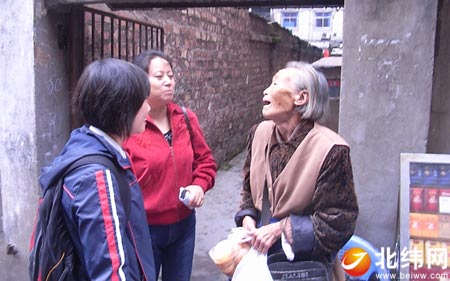 社区自愿者看望社区居家老人 居家养老,即以居家为主,社区服务为依托,福利机构为补充的“居家养老,上门服务”社会化养老模式。所谓依托社区的居家养老模式是:老人虽然家住社区,但是享受的不是传统意义上自己照
...[详细]
社区自愿者看望社区居家老人 居家养老,即以居家为主,社区服务为依托,福利机构为补充的“居家养老,上门服务”社会化养老模式。所谓依托社区的居家养老模式是:老人虽然家住社区,但是享受的不是传统意义上自己照
...[详细]
-
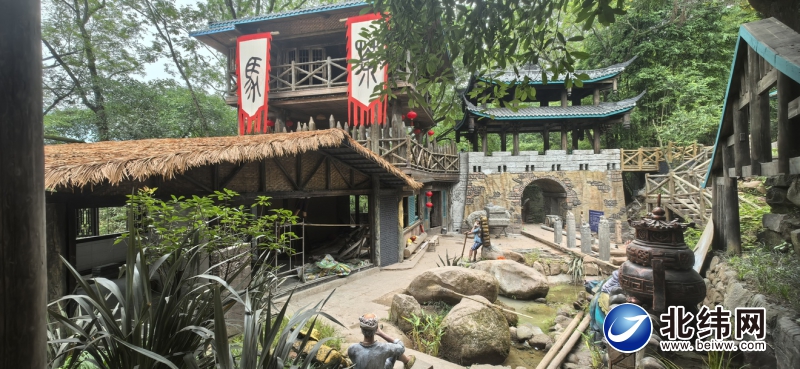 改造提升后的景观节点本报讯8月23日,记者再次来到芦山县飞仙关4A级景区旅游基础设施建设项目施工现场,与两个月前相比,这里的变化十分明显。芦山县飞仙关4A级景区旅游基础设施建设项目共有两个标段,建设内
...[详细]
改造提升后的景观节点本报讯8月23日,记者再次来到芦山县飞仙关4A级景区旅游基础设施建设项目施工现场,与两个月前相比,这里的变化十分明显。芦山县飞仙关4A级景区旅游基础设施建设项目共有两个标段,建设内
...[详细]
-
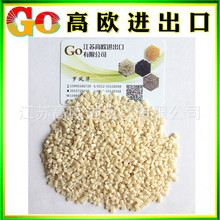 雅安日报讯 昨14)日,市人大常委会副主任王平主持召开市二届人大常委会第35次主任会议。副主任罗叔安、钟培基、张廷刚、宋德全、唐芳琼和秘书长戴华强出席会议。 会议宣读了市委有关任免职通知,讨论了主任
...[详细]
雅安日报讯 昨14)日,市人大常委会副主任王平主持召开市二届人大常委会第35次主任会议。副主任罗叔安、钟培基、张廷刚、宋德全、唐芳琼和秘书长戴华强出席会议。 会议宣读了市委有关任免职通知,讨论了主任
...[详细]
-
 孔明灯又名阳灯、许愿灯。孔明灯是人们在元宵佳节寄托美好愿望和祝福平安的载体。2月28日,在家长的帮助下,一些孩子们尝试着自己动手制作孔明灯,活动组织者希望借此培养孩子的动手能力,为元宵节增加欢乐气氛
...[详细]
孔明灯又名阳灯、许愿灯。孔明灯是人们在元宵佳节寄托美好愿望和祝福平安的载体。2月28日,在家长的帮助下,一些孩子们尝试着自己动手制作孔明灯,活动组织者希望借此培养孩子的动手能力,为元宵节增加欢乐气氛
...[详细]
-
 近日,民政部网站发布了《关于进一步推进和谐社区建设工作意见》以下简称《意见》),鼓励社区内或周边单位向社区居民开放内部食堂、浴室、文体和科教设施,支持驻社区单位和社区居民开展邻里互助等群众性自我服务
...[详细]
近日,民政部网站发布了《关于进一步推进和谐社区建设工作意见》以下简称《意见》),鼓励社区内或周边单位向社区居民开放内部食堂、浴室、文体和科教设施,支持驻社区单位和社区居民开展邻里互助等群众性自我服务
...[详细]
-
11 Unique Amaros and Liqueurs to Level Up Your Aperol Spritz
 Spritzes, made of sparkling wine, soda water, and amaro, have become synonymous with summer in the U
...[详细]
Spritzes, made of sparkling wine, soda water, and amaro, have become synonymous with summer in the U
...[详细]
-
 雅安日报讯 28日开始,市公安局交警支队直属一大队针对市区内车辆乱停乱放行为开展了集中整治,交警部门将以“清洁化、秩序化、优美化、制度化”为目标,依法对机动车乱停乱放行为进行纠正和处罚,进一步改善市
...[详细]
雅安日报讯 28日开始,市公安局交警支队直属一大队针对市区内车辆乱停乱放行为开展了集中整治,交警部门将以“清洁化、秩序化、优美化、制度化”为目标,依法对机动车乱停乱放行为进行纠正和处罚,进一步改善市
...[详细]
热点阅读

 Top 10 Tech Pranks
Top 10 Tech Pranks 新年第一天 节日气氛浓厚
新年第一天 节日气氛浓厚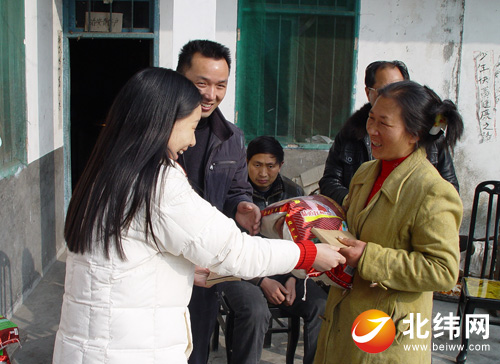 石棉县财政局慰问结对帮扶户
石棉县财政局慰问结对帮扶户 广州援疆工作队开展援疆教师、支教实习生慰问活动
广州援疆工作队开展援疆教师、支教实习生慰问活动 Cicadas love to land on people. Experts explain why.
Cicadas love to land on people. Experts explain why.
